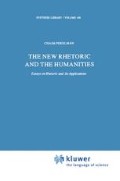Abstract
If two people in the same situation must make a decision, e.g., the choice of a candidate, a judicial judgment, etc., and decide differently, can we assume that each is capable of acting reasonably or must we assume that this is impossible and that one of them must act unreasonably because of imperfect knowledge of the facts or the compulsion to act from such irrational motives as passion, interest or capriciousness? Judicial decisions seem to imply this conclusion. J. Roland Pennock admits this when he writes: “Where a Court consists of more than one judge, presumably each of the judges, if acting with complete rationality, would arrive at the same decision in a given case.”1 Although this conclusion seems to conform to common sense it is refuted by the well-known fact that the United States Supreme Court rarely reaches unanimous decisions, yet the Court commands great respect and its judges are known for their competency. The majority of the Court’s decisions which have been significant in American judicial history were by a majority of 6 to 3 or even 5 to 4. Should the conclusion be drawn that in each case the majority or minority decided in an unreasonable manner? Is there cause to doubt the intellectual or moral integrity of the Court, because some judges are at times in the majority and at others in the minority?
This article appeared in Archivio di Filosofia, 1966, pp. 87–93 and Droit, Morale et Philosophie (Paris, 1968), pp. 103–109.
Access this chapter
Tax calculation will be finalised at checkout
Purchases are for personal use only
Preview
Unable to display preview. Download preview PDF.
References
J. Roland Pennock, ‘Reason in Legislative Decisions’ in Rational Decision, Nomos VII (New York, Atherton Press, 1964 ), p. 102.
R. Descartes, ‘Règles pour la direction de l’esprit’, II, Oeuvres, Vol. XI, pp. 205–206, trans. V. Cousin, (Paris, 1826), Descartes Philosophical Writings, trans, by N. K. Smith (New York, 1958 ), p. 5.
Hume, Treatise of Human Nature, (ed. by L. A. Selby-Bigge), Book III, Part I, Section I.
Babylonian Talmud, Erubin, 13B.
Ibid.
The Methods of Ethics, 7th e. (London, 1907), p. 33.
Ibid. p. 209.
Ibid. p. 379.
La règle de justice’, in Justice et Raison, (Brussels, 1963) pp. 224–233, English trans., ‘The Rule of Justice’ in The Idea of Justice and The Problem of Argument (London, 1963), pp. 79–88.
M. G. Singer, Generalization in Ethics, (New York, 1961 ), p. 17.
The Monist 49 (1965), pp. 198–214.
H. Melville, Billy Budd (Bantham Books, 1961 ).
Op. cit., p. 209.
Author information
Authors and Affiliations
Additional information
Dedicated to Professor Th. Kotarbinski
Rights and permissions
Copyright information
© 1979 D. Reidel Publishing Company, Dordrecht, Holland
About this chapter
Cite this chapter
Perelman, C. (1979). Disagreement and Rationality. In: The New Rhetoric and the Humanities. Synthese Library, vol 140. Springer, Dordrecht. https://doi.org/10.1007/978-94-009-9482-9_10
Download citation
DOI: https://doi.org/10.1007/978-94-009-9482-9_10
Publisher Name: Springer, Dordrecht
Print ISBN: 978-90-277-1019-2
Online ISBN: 978-94-009-9482-9
eBook Packages: Springer Book Archive

